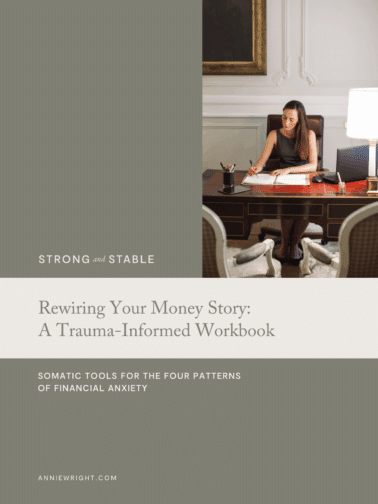Hey friend,
The questions you submitted for this month’s Q&A revealed something I see constantly with driven and ambitious women: the specific heartbreak of achieving everything you dreamed of, only to realize your family can’t—or won’t—celebrate it with you.
Questions about literally no one in your family asking about selling your company. About siblings making passive-aggressive jokes that you’re “too good for them” now. About mothers unsubscribing from your newsletter the moment you write about boundaries. And about the complete exhaustion that follows every family visit, leaving you crying in your car and depleted for days.
Your questions weren’t asking for generic advice about difficult families. They were asking something much more nuanced: How do you grieve the family you wish you had while staying connected to the one you actually have? How do you hold love for people who seem threatened by your growth? How do you manage the vulnerability hangover that comes after code-switching between your authentic self and your “family-acceptable” self for hours or days?
These are the questions that keep driven women staring at the ceiling at 3 AM—because healing this dynamic isn’t about cutting people off or making yourself smaller. It’s about learning to love people while refusing to betray yourself in the process.
In this month’s Q&A, I address the real mechanics behind family resistance to your success—and what it actually looks like to maintain connection without sacrificing your growth.
Here’s part of my response to the reader whose mother unsubscribed from her newsletter about boundaries:
“The universe has such a twisted sense of humor sometimes. You can love someone and accept that they’re not capable of being in a healthy relationship with you. You can honor what your mother gave you and recognize it’s not enough anymore. Sometimes the most loving thing for both of you is to stop trying to force connection when there’s only dysfunction.”
The complete Q&A goes deeper into what I call the “hardware store and milk” framework—understanding when you’re going to the wrong place for what you need. I also address practical strategies for managing the “vulnerability hangover” after family visits, including how to complete the stress cycle and why planning for recovery isn’t optional.
These conversations are too specific for generic family advice and too complex for surface-level boundary setting. They’re for women who understand that their professional competence and success doesn’t automatically translate to personal relationships—and who are ready to build something different.
The full 45-minute recording and complete transcript are below, including detailed frameworks for distinguishing between love and codependence, and practical strategies for finding your professional allies when family can’t fill that role.




